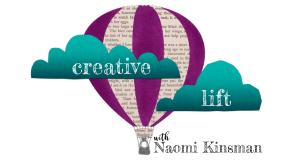How to Reach a Complex Goal

Do you have enormous goals on your mental or physical to-do list such as:
- Learn how to podcast
- Write a novel
- Run a half-marathon
- Learn to play the guitar
Projects such as these beg the question: Where should I start?
When learning to draw, the first task is to stop one’s mind from translating the concept “apple” into a symbol. We must see the real apple with all its curves and irregularities in order to accurately draw it.
In my experience, the same is true with goals. Our brains, amazing tools that they are, simplify complex projects into impossible-to-tackle placeholders. While we can pick up a guitar and start plucking strings, for most of us, the time spent isn’t likely to result in learning to play guitar.
Why?
- We haven’t clarified what we mean by “learn to play the guitar.”
- We don’t know where to start.
- We quickly lose heart when we can’t track or measure our progress.
Let’s turn these challenges into proactive steps, and see where they lead.
Clarify the Goal
In the Attic, we explore the heart of a project. In the Studio, we improvise to bring new possibilities into the world. However, the Workshop provides us with tools to give our loose idea-material structure. In the Workshop, one asks: What do I know? What do I need to know? What are the pieces of this project or this skill? Where might I start?
One major task of the Workshop is to determine the scope of our project. It’s one thing to learn to front a rock band, and an entirely other one to learn to strum campfire songs. When we clarify our project, we determine our focus. With focus, we can clearly see which actions will be most effective to help us reach our goal.
One of the best strategies for clarifying your project is to take a quiet moment, close your eyes, and picture success in detail.
- What will the scene look like on the day you achieve this goal?
- What will you see, hear, feel?
- What will you be physically doing?
Once you have a clear picture, capture the highlights on paper. This scene becomes your destination point, and helps you determine which actions are relevant, and which are not.
Determine Where to Start
While we want our destination to be a firm location, with creative projects especially, the path to the goal can vary widely. Consider an open space with many trails that end at a lake. There may be four or five possible starting points, and various trails with scenic points along the way.
In the end, our experience of “hiking to the lake” is singular. No matter how much we plan a hike or a creative project, something is bound to surprise us along the way. Ideally, we want to create a plan with enough structure to keep us moving toward our ultimate goal, while leaving room for surprise.
Ask Yourself:
- Where are my current circumstances with regard to this project?
- What do I hope to learn along the way?
- How much time and stamina do I have?
Track and Measure Progress Toward Your Goal
Each year when Society of Young Inklings begins the Inklings Book editorial process, we ask our mentors to choose a specific revision focus. For instance, the mentor and youth writer may focus on developing character through dialogue.
By focusing on dialogue, the youth writer sees improvement that can be specifically described. “My dialogue used to be x, and now it is y.” This clear growth builds confidence. While revising with a specific focus, writers often identify other weaknesses and fix them without becoming sidetracked. Contrast this approach with a general “I’ll fix everything that’s wrong” approach. You can see how rabbit trails and discouragement easily set in.
In order to track and measure your progress, be specific about what you’re tracking. Ask yourself:
- What external milestones are essential along the way?
Here, consider the achievements between start and finish, such as character profiles, a plot, a first draft, a critique session, a revision, etc.
- What internal milestones are essential along the way?
Here, refer to the question: What do I want to learn along the way? Break that goal into measurable steps. If you want to learn about developing believable characters, what is involved?
First Steps
If you do have a giant project on your to-do list, depending on your style, your first step may be to head into the Attic to figure out why this project is so important to you. Alternatively, your first step may be to hit the Studio to play around and find your general direction.
Somewhere, though, early on in the process, the Workshop becomes a necessary step. For most of us, the purpose of major projects such as writing a novel or running a half-marathon is to challenge ourselves to grow. Growth will happen naturally whether we make a plan or not, but we’re more likely to see the results we hope for if we understand what those results will look like—both externally and internally.
I look forward to hearing about your projects and successes! Make sure to share so we can cheer you on.
